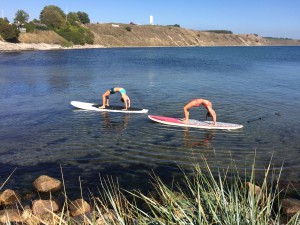 Det är visat i studier att träning kan ha en positiv effekt på överlevnad i cancer – även om hård konditionsträning inte är att rekommendera eftersom det kan höja blodsockernivåerna och förhindra de positiva effekterna av en ketogen kost på cancer. (Lyssna gärna på avsnitt 92 och 92b av podcasten , samt avsnitt 40, för mer på detta ämne)
Det är visat i studier att träning kan ha en positiv effekt på överlevnad i cancer – även om hård konditionsträning inte är att rekommendera eftersom det kan höja blodsockernivåerna och förhindra de positiva effekterna av en ketogen kost på cancer. (Lyssna gärna på avsnitt 92 och 92b av podcasten , samt avsnitt 40, för mer på detta ämne)
Om lugnare former av rörelse, såsom tai chi eller yoga, kan ha en positiv effekt på cancer har hittills inte varit känt. Men amerikanska forskare har nu visat hur dagliga stretchingövningar kan hålla tillbaka cancertillväxt med över 50%! utan någon annan form av behandling. Deras analyser indikerar att stretching kan påverka ett par mekanismer som är relevanta för cancer – inflammation och det som kallas immune cell exhaustion eller T cell exhaution (“T cell exhaustion is the progressive loss of T cell function. It is associated with epigenetic changes in the T cells.” Du kan läsa mer om det här: https://www.nature.com/articles/ni.2035 och https://www.ncbi.nlm.nih.gov/pmc/articles/PMC2842494/)
Tidigare studier på träning vid cancer har gett blandade resultat, även om det mesta tyder på att det är positivt. Mekanismerna kring varför träning kan vara positivt i cancer är inte heller kända.
Forskarnas studier är här gjorda på möss. I sina tidigare studier visade de att daglig stretching på 10 minuter signifikant reducerade lokal vävnadsinflammation och fibros genom stretchingens direkta effekt på vävnaden. Det kommer också allt mer forskning som indikerar att mekaniska faktorer i själva vävnaden kan påverka tillväxten av tumörer (glöm inte att lyssna på podcastavsnittet om biomekanik apropå detta https://4health.se/avsnitt-21-undvik-vark-och-skada-sa-paverkar-du-din-bindvav-och-sa-har-undviker-du-belastningscancer-och-arteriellt-plack) Forskarnas hypotes var därför att stretching skulle kunna reducera tillväxten av tumörer.
Forskarna testade detta på bröstcancer, igenom att inplantera tumörer i möss och sedan försiktigt hjälpa mössen att stretcha vävnaden där tumörerna fanns i 10 minuter dagligen. Detta jämfördes med en kontrollgrupp där mössen inte stretchade.
Tumörstorleken var i slutet av studien 52% mindre i gruppen som stretchade jämfört med den som inte gjorde det.
Lite mer om mekanismerna:
“Further analyses showed that stretch-group animals demonstrated upregulated overall levels of inflammatory mediators. The stretch-group animals also exhibited immune response-related gene signatures. Stretching was in addition more specifically found to increase the number of INF-γ+ CD4+ T cells within the inflammatory lesion, within just days.”
“The authors point out that diminished cytotoxic immunity is a mechanism that underpins the state of T-cell exhaustion in cancer, and is linked with lower levels of effector cytokines and the presence of inhibitor receptors on T cells, which permits tolerance to the cancer cells. “Because INF-γ is one of the key effector cytokines in cytotoxic immune responses, these results support a role for stretching in promoting TH-1 cytotoxic immunity,”
“Given the increased levels of INF-γ in the stretch-group animals, the researchers reasoned that this physical act of stretch restores cytotoxic immunity. When they next looked at T-lymphocyte populations, they found that mice in the stretch group exhibited lower levels of programmed death receptor-1 (PD-1) checkpoint-bearing CD8+ T cells, one of the major markers of T-cell exhaustion, suggesting that stretching may in addition counteract CD8+ T-cell impairment and “allow adaptive cytotoxic immune responses against the tumor to take place.””
Inflammation har både för och nackdelar i cancer. En lokal inflammatorisk respons / ökad aktivitet i immunförsvaret, kan hjälpa till att bekämpa cancern, men kronisk inflammation kan också bidra till tumörtillväxt. Inflammation behöver alltså begränsas till det område där den behövs, samt tidsmässigt.
“the researchers next looked at the effects of stretching on tumor levels of the lipid-derived specialized pro-resolution mediators (SPMs) RvD1 and RvD2, which promote the natural resolution of inflammation and have been shown to inhibit tumor growth in mouse models. Their measurements showed that levels of RvD1 and RvD2 were significantly higher in the stretch group.”
Forskarna betonar att det verkar som att stretching kan hålla inflammationen kontrollerad utan att sänka den cytotoxiska effekten av T-cellerna.
Ur studien:
“Recent studies have shown that gentle daily stretching for 10 minutes can reduce local connective tissue inflammation and fibrosis. Because mechanical factors within the stroma can influence the tumor microenvironment, we hypothesized that stretching would reduce the growth of tumors implanted within locally stretched tissues and tested this hypothesis in a mouse orthotopic breast cancer model. Female FVB mice (N = 66) underwent bilateral injection of p53/PTEN double-null primary mouse mammary tumor cells into the third mammary fat pad. Mice were randomized to stretch vs. no stretch, and treated for 10 minutes once a day, for four weeks. Tumor volume at end-point was 52% smaller in the stretch group, compared to the no-stretch group (p < 0.001) in the absence of any other treatment. Cytotoxic immune responses were activated and levels of Specialized Pro-Resolving Mediators were elevated in the stretch group. These results suggest a link between immune exhaustion, inflammation resolution and tumor growth. Stretching is a gentle, non-pharmacological intervention that could become an important component of cancer treatment and prevention.”
Mer om cancer via taggen


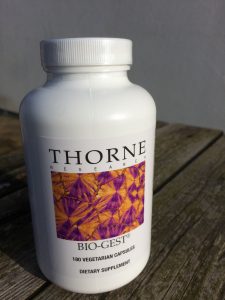
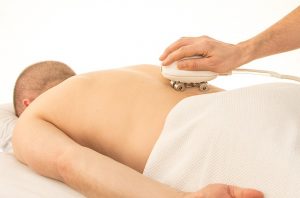

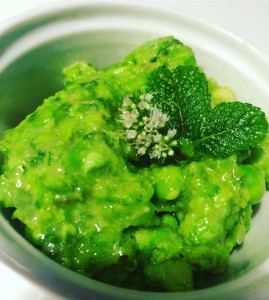
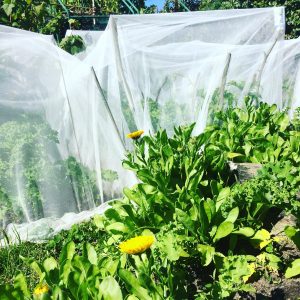

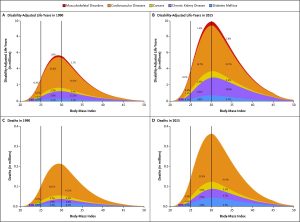
Senaste kommentarer